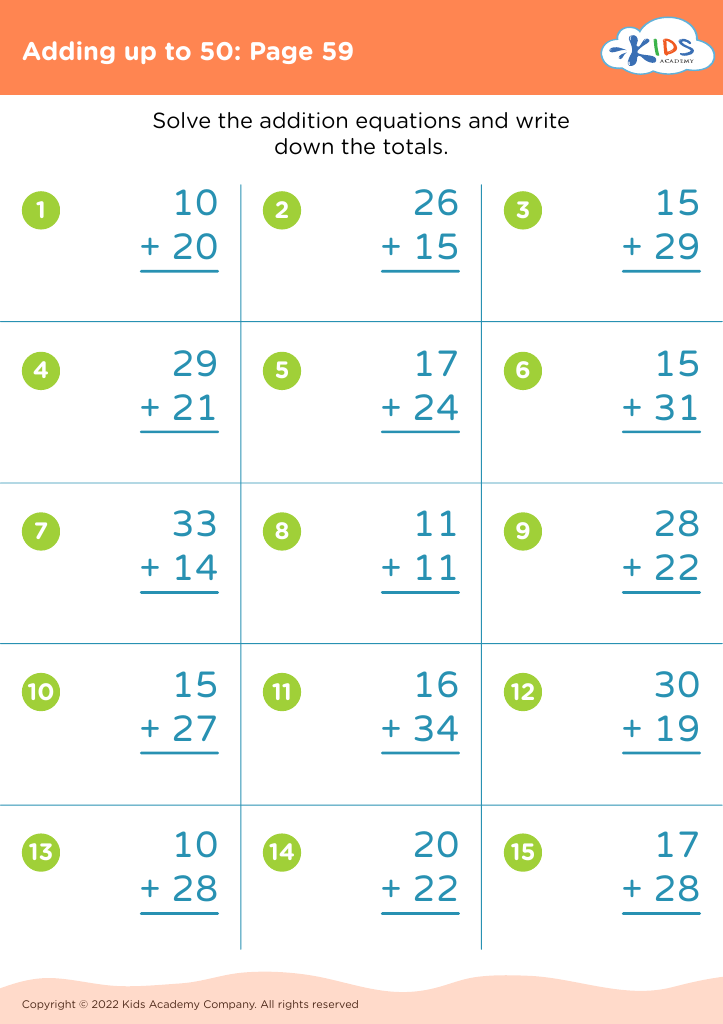Understanding sequence Addition Worksheets for Ages 6-7
4 filtered results
-
From - To
Unlock your child’s mathematical potential with our "Understanding Sequence Addition Worksheets" designed specifically for ages 6-7. These worksheets offer engaging activities that help young learners grasp the concept of addition through sequential problem-solving. By practicing with fun, age-appropriate exercises, children will build crucial skills in recognizing patterns and improving their computational abilities. Our resources are tailored to support interactive learning, encouraging kids to think critically while boosting their confidence in mathematics. Whether in the classroom or at home, these worksheets will foster a solid foundation in addition and enhance your child's overall mathematical understanding. Explore our collection today!
Understanding sequence addition is crucial for children aged 6 to 7 as it forms the foundation for their mathematical reasoning and problem-solving skills. At this developmental stage, children are transitioning from concrete operational thinking to more abstract reasoning. Mastering sequence addition helps them recognize patterns and relationships between numbers, allowing them to efficiently solve mathematical problems.
Parents and teachers should care about this principle because it not only enhances a child's mathematical abilities but also builds their confidence in handling numbers. When children learn to add numbers in a sequence, they develop strategies that boost their numerical fluency—a skill that will serve them well as they encounter more complex math concepts in later grades.
Additionally, understanding sequence addition encourages the use of mental math, which promotes critical thinking and allows children to approach problems more flexibly. It also fosters patience and persistence, essential attributes for academic success. Educators and parents can facilitate this understanding through engaging activities and practical applications, thus laying a strong groundwork for lifelong learning in mathematics. Ultimately, nurturing these skills empowers children to face future challenges with confidence and a positive attitude toward math.




















